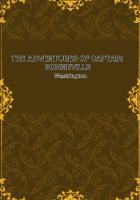Now, with regard to the doctor's notion of leaving Hintock, he had advanced furthur towards completing the purchase of the Budmouth surgeon's good-will than he had admitted to Mrs. Charmond. The whole matter hung upon what he might do in the ensuing twenty-four hours. The evening after leaving her he went out into the lane, and walked and pondered between the high hedges, now greenish- white with wild clematis--here called "old-man's beard," from its aspect later in the year.
The letter of acceptance was to be written that night, after which his departure from Hintock would be irrevocable. But could he go away, remembering what had just passed? The trees, the hills, the leaves, the grass--each had been endowed and quickened with a subtle charm since he had discovered the person and history, and, above all, mood of their owner. There was every temporal reason for leaving; it would be entering again into a world which he had only quitted in a passion for isolation, induced by a fit of Achillean moodiness after an imagined slight. His wife herself saw the awkwardness of their position here, and cheerfully welcomed the purposed change, towards which every step had been taken but the last. But could he find it in his heart--as he found it clearly enough in his conscience--to go away?
He drew a troubled breath, and went in-doors. Here he rapidly penned a letter, wherein he withdrew once for all from the treaty for the Budmouth practice. As the postman had already left Little Hintock for that night, he sent one of Melbury's men to intercept a mail-cart on another turnpike-road, and so got the letter off.
The man returned, met Fitzpiers in the lane, and told him the thing was done. Fitzpiers went back to his house musing. Why had he carried out this impulse--taken such wild trouble to effect a probable injury to his own and his young wife's prospects? His motive was fantastic, glowing, shapeless as the fiery scenery about the western sky. Mrs. Charmond could overtly be nothing more to him than a patient now, and to his wife, at the outside, a patron. In the unattached bachelor days of his first sojourning here how highly proper an emotional reason for lingering on would have appeared to troublesome dubiousness. Matrimonial ambition is such an honorable thing.
"My father has told me that you have sent off one of the men with a late letter to Budmouth," cried Grace, coming out vivaciously to meet him under the declining light of the sky, wherein hung, solitary, the folding star. "I said at once that you had finally agreed to pay the premium they ask, and that the tedious question had been settled. When do we go, Edgar?"
"I have altered my mind," said he. "They want too much--seven hundred and fifty is too large a sum--and in short, I have declined to go further. We must wait for another opportunity. I fear I am not a good business-man." He spoke the last words with a momentary faltering at the great foolishness of his act; for, as he looked in her fair and honorable face, his heart reproached him for what he had done.
Her manner that evening showed her disappointment. Personally she liked the home of her childhood much, and she was not ambitious.
But her husband had seemed so dissatisfied with the circumstances hereabout since their marriage that she had sincerely hoped to go for his sake.
It was two or three days before he visited Mrs. Charmond again.
The morning had been windy, and little showers had sowed themselves like grain against the walls and window-panes of the Hintock cottages. He went on foot across the wilder recesses of the park, where slimy streams of green moisture, exuding from decayed holes caused by old amputations, ran down the bark of the oaks and elms, the rind below being coated with a lichenous wash as green as emerald. They were stout-trunked trees, that never rocked their stems in the fiercest gale, responding to it entirely by crooking their limbs. Wrinkled like an old crone's face, and antlered with dead branches that rose above the foliage of their summits, they were nevertheless still green--though yellow had invaded the leaves of other trees.
She was in a little boudoir or writing-room on the first floor, and Fitzpiers was much surprised to find that the window-curtains were closed and a red-shaded lamp and candles burning, though out- of-doors it was broad daylight. Moreover, a large fire was burning in the grate, though it was not cold.
"What does it all mean?" he asked.
She sat in an easy-chair, her face being turned away. "Oh," she murmured, "it is because the world is so dreary outside. Sorrow and bitterness in the sky, and floods of agonized tears beating against the panes. I lay awake last night, and I could hear the scrape of snails creeping up the window-glass; it was so sad! My eyes were so heavy this morning that I could have wept my life away. I cannot bear you to see my face; I keep it away from you purposely. Oh! why were we given hungry hearts and wild desires if we have to live in a world like this? Why should Death only lend what Life is compelled to borrow--rest? Answer that, Dr.
Fitzpiers."
"You must eat of a second tree of knowledge before you can do it, Felice Charmond."
"Then, when my emotions have exhausted themselves, I become full of fears, till I think I shall die for very fear. The terrible insistencies of society--how severe they are, and cold and inexorable--ghastly towards those who are made of wax and not of stone. Oh, I am afraid of them; a stab for this error, and a stab for that--correctives and regulations framed that society may tend to perfection--an end which I don't care for in the least. Yet for this, all I do care for has to be stunted and starved."














